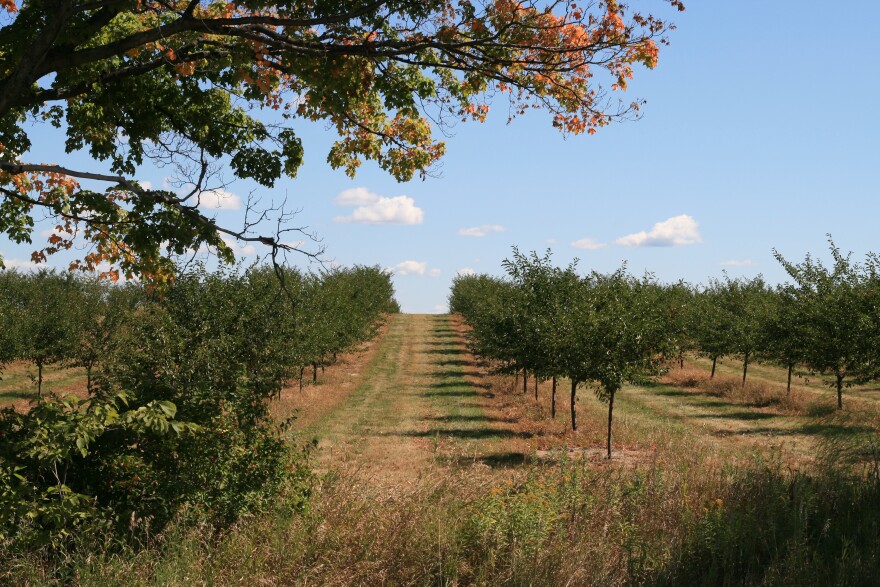From two big snow storms one week to temperatures flirting with 70 degrees the next, Michigan weather does its best to keep us on our toes.
As we stripped off our boots and winter coats in favor of shorts and t-shirts this week, it brought back memories of this time a few years ago. March 2012 saw temperatures climb into the 80s before reality set back in, with 19 straight nights of freezing temperatures.
While that temperature swing forced many of us to begrudgingly return to our scarves and gloves, it absolutely devastated Michigan’s cherry crop.
Ben LaCross grows cherries on 750 acres in Leelanau County. Looking back to 2012, LaCross tells us the prematurely warm weather brought the trees out of hibernation six to eight weeks ahead of schedule.
“Growers, we knew what we were in for that year. We knew that Mother Nature was going to adjust and get back to a state of equilibrium and get back to our traditional colder temperatures in later March, early April,” LaCross says. “We knew we were going to be in for a challenge that year.”
"That year we lost 90 to 95% of all of our fruit in Northern Michigan."
He tell us it wasn’t just the cherry crops that were hit hard that year, but also peaches, grapes, blueberries, and apples.
“That year we lost 90 to 95% of all of our fruit in Northern Michigan, and really throughout the state of Michigan,” he says. “Every perennial fruit crop was affected, just because those trees or those bushes or those vines came out of dormancy way too early, and then they got froze later on in the springtime.”
That one week of 80-degree temperatures went on to have long-lasting effects on the cherry industry in Michigan. LaCross says Michigan imported cherries from other countries in order to fill the gap left by the devastated local crops, and now, having “gotten a foot in the door,” those countries continue to hold a significant chunk of the state’s market.
LaCross remains optimistic that this year’s warm weather preview won’t have as drastic an impact on produce crops in Michigan as it did in 2012. He has noticed his trees start to react to the warmer weather, but he says it shouldn’t be an issue as long as temperatures stay pretty mild.
“It could be in the safe zone if the rest of the spring is warmer than normal,” LaCross says, “but if we went back to a polar vortex type of situation, where we get zero degrees or 10 degrees towards the end of March, that could be really damaging.”





